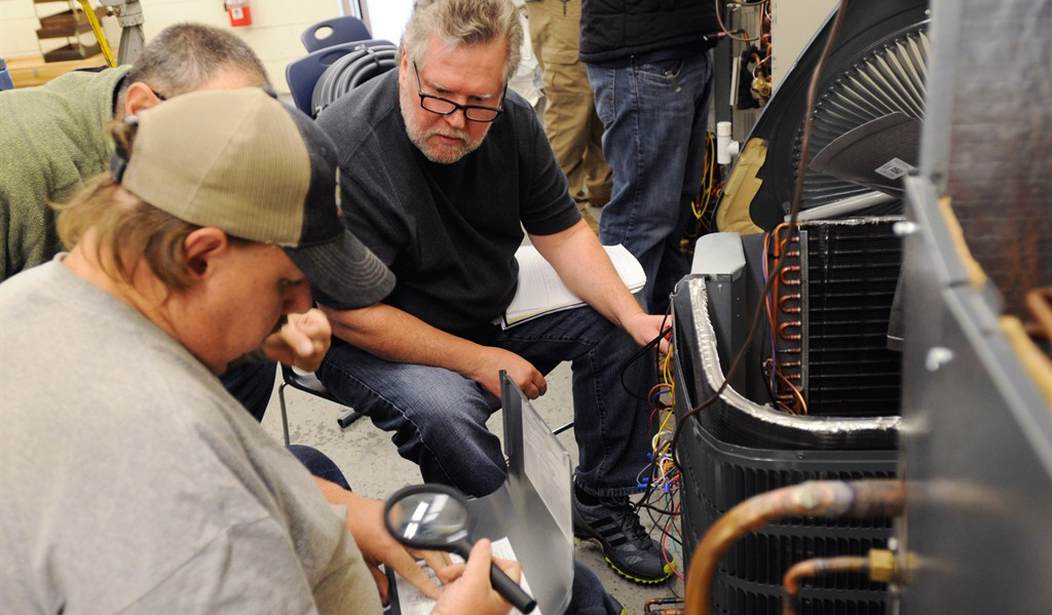In my younger years, the prevailing wisdom dictated that once you graduate high school, you absolutely must go to college and earn a degree. Otherwise, you would never be able to obtain gainful employment, which would result in years of poverty.
The brainwashing was so strong because this message was hammered home on a constant basis. Fast forward to 2024, and it appears the falsehood has been exposed – especially among Gen Z.
A recent report from the National Student Clearinghouse Research Center revealed a significant decline in college enrollment among freshman students. The report was initially compiled in 2020 to assess the impact of the COVID-19 pandemic on enrollment in postsecondary institutions.
“Preliminary data for fall 2024 shows undergraduate enrollment increasing 3 percent,” the report notes. However, there has been a marked decline in freshman enrollment.
Contrary to overall enrollment growth, freshman enrollment is declining, down 5 percent from this time last fall with public and private nonprofit 4-year institutions seeing the largest declines (-8.5% and -6.5%). An almost 6 percent drop in the number of 18-year-old freshmen (a proxy for those enrolling immediately after high school graduation) is driving most of the decline.
Researchers also found that "Bachelor’s (+1.9%) and associate degree (+4.3%) programs are seeing enrollment gains this fall. The number of students pursuing shorter-term credentials is continuing to grow rapidly, with enrollment in undergraduate certificate programs increasing 7.3 percent."
This data is noteworthy all on its own, but when combined with the numbers concerning students enrolling in trade schools, we get a fuller picture of what is happening here.
While enrollment in higher education has been on the decline for over a decade, younger generations are looking at alternatives, such as trade schools.
"Confidence in colleges is falling, and the perceived value of on-the-job training and shorter-term licensure or certificate programs is on the rise,” according to Finance & Commerce. Much of this is due to decreasing faith in higher education.
Although 58 percent of high schoolers and 51 percent of non-enrolled adults in 2023 believed "you must have a college degree to earn a good job," 69 percent and 65 percent, respectively, believed certification is enough, according to a study by Edge Research and HCM Strategists.
Many students are realizing that trade schools offer a more cost-effective and practical way to stable, high-paying jobs. The growing interest in trades is not only related to cost but also job security. The demand for skilled trade workers is expected to rise due to infrastructure projects funded by recent legislation such as the Bipartisan Infrastructure Act and the Inflation Reduction Act.
Investments from the Bipartisan Infrastructure Act and the Inflation Reduction Act promise a massive demand for skilled trades workers over the next 10 years. Again, political winds could alter this trajectory, but I believe that increased trade school enrollment should translate into increased union membership over time.
This trend is also a benefit for employers, who are increasingly looking for workers who already have hands-on experience. "Manufacturers need people who have more than just a classroom education. They need people who are familiar with the tools they will find around a shop,” said Peter Connolly, CEO of the New Jersey Manufacturing Extension Program.
He continued, explaining that manufacturing companies “need people who know how to handle themselves safely in a manufacturing environment” and “might be hesitant to hire a completely inexperienced individual who doesn’t have any safety or awareness training as it pertains to an industrial environment.”
Younger generations also seem to understand the wisdom in pursuing trades rather than largely useless degrees that leave them buried in mounds of debt. “Young people ask why a union electrician makes $100,000 and many college graduates are only making $40,000, while they carry a Mount Everest of debt,” said Greg Lalevee, business manager of the International Union of Operating Engineers Local 825.
Lalevee also noted, "If something goes sideways with your plumbing or electric, you’re not going to quibble about the price to get it fixed.”
This is one reason why Gen Z has been dubbed the “toolbelt generation” as they look at alternatives to traditional higher education. Perhaps this data indicates that many are seeing that they have been sold a bill of goods when it comes to academia.
Yes, there are still valid reasons to attend a four-year university for many students. But not for everyone. As conversations over student debt and the plight in which many graduates find themselves continue, it won’t be surprising to see even more younger generations eschew higher education in favor of learning skills that will always be needed.












